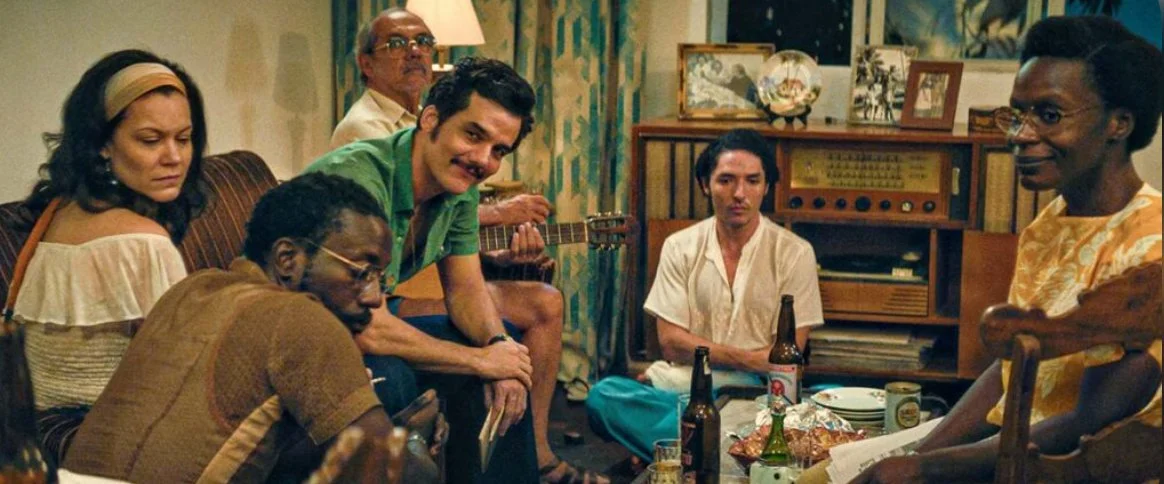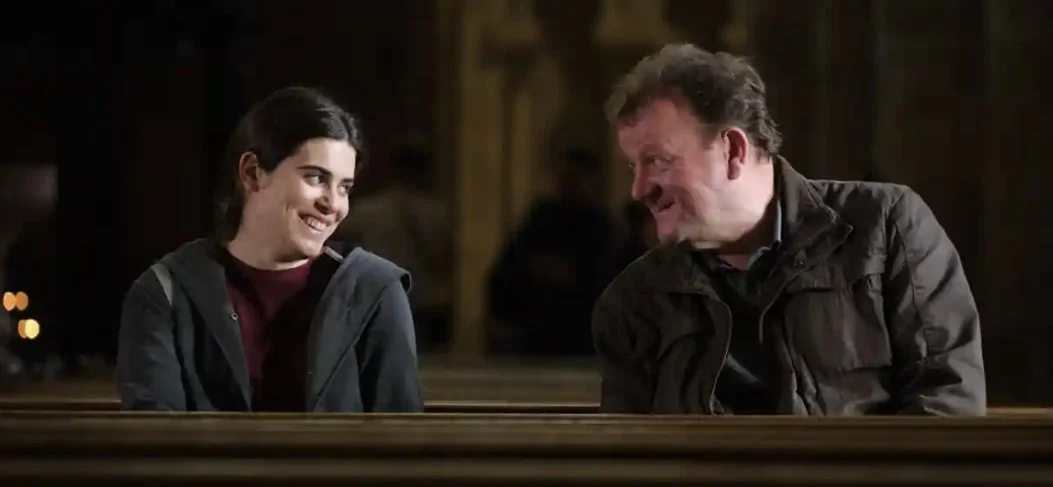Ken Loach said on Friday he does not know if "The Old Oak” would be his last film.
"Oh, I don't know, I live day by day," said Loach, who turns 87 in June. "If you read the obituary columns and you're not in them, it's a good day. So we just keep going, really."
His ‘Old Oak’ screened this afternoon at Cannes. It’s probably the most emotionally manipulative film of his career, and that’s saying something. Don’t get me wrong, Loach is a legend, his 1969 film “Kes” still a masterpiece, but lately he’s been trying too hard to pull at the heartstrings.
At least his 2016 Palme winner “I, Daniel Blake” worked well enough, until its nauseating final few minutes. Ditto 2019’s “Sorry We Missed You,” another highly political working class story that delved into the maudlin at its climax.
In this new film, “The Old Oak,” a pub is the only public place left for locals in a former British mining village to hang out, but then Syrian families fleeing war begin showing up in buses, which riles up some of the locals and brings out racist attitudes towards the Syrians.
The film is as subtle as a ton of bricks. Meaning, it’s Loach being Loach. Nuance goes out of the window in favour of speechifying. There’s a preachy nature throughout “The Old Oak” that makes it almost impossible to sit through.
The story could have been set in any other small town — a thriving, proud community struggling to keep their old values alive, it’s very topical, but Loach adds the Syrians to increase the growing anger and resentment.
TJ (Dave Turner) is one of the few who receives these immigrants with open arms. He’s the divorced middle-aged owner of the Old Oak pub and ends up striking a friendship with Yara (Ebla Mari), a young Syrian woman who just arrived in the village with her mother and siblings.
He tries to protect Yara from the racists, but they continuously harass and taunt. It all feels phony, there’s no nuance to the damn thing, the characters have no dimension — a few of them even utter the line “I’m not racist, but …”
SPOILERS
Eventually, the locals magically transform to non-racists. Yes, that’s right. At the flick of a switch they start showing empathy. How did this happen? I’m not entirely sure, but Loach hammers it down our throats that even racists can have a sudden 180.
It’s a silly, preposterous and inessential addition to Loach’s filmography.






